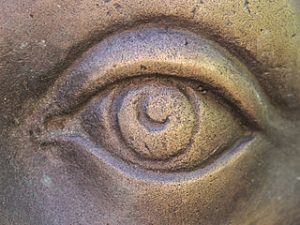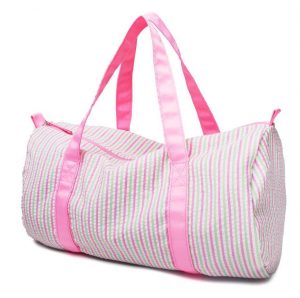[H]istory is something that happens to peoples, things, and organisms, and is not made by them.
— Daniel Lord Smail
I came across that sentence in Professor Smail’s On Deep History and the Brain. While everything he was saying in the book was making sense to me as he laid the groundwork for an argument that history should begin at the beginning (which is different from beginning at the point where people starting writing it down), this particular observation resonated with me on a deep level.
There is a deep cultural assumption that people make history. I immediately think of the slogan “Well-behaved women rarely make history.” But even the ill-behaved among us do not make history, though they are perhaps more likely to be remembered by it.
Certainly the actions of one person or another can affect history. So, too, can an earthquake. But the person who murders someone important or fails at handling a pandemic is not making history. That person does not control what will happen next as a result of their violent act or their incompetence. The changes may not be at all what they would have wanted if they controlled the outcome.
It’s true that some murderers and incompetents are remembered for a long time. Perhaps they think being remembered is making history. Maybe being remembered is enough for them.
Another statement that rings true to me, that in fact came to mind as I was reading the quoted line, is this statement by Rebecca Solnit of something Michel Foucault said:
“You know what you do. You don’t know what you do does.”
We do not control outcomes. We do not make history. But the things we do are part of history and they may have a powerful effect. It may not be the one we wanted. It may not come when we wished for it to happen. But in this complex world, where a butterfly’s flap of wings might end up causing a storm ten thousand miles away, what each of us do matters.
I take this as an encouragement to live your life by your principles and to make an effort to do what you think is right and appropriate. If you’re an artist, make your art. If you’re an activist, organize for change. What you control is the doing. What you are making is the action.
What happens with it, what history gets made, is not under your control.

 As I write this, the Derek Chauvin trial is still under way, another Black man has been shot by law enforcement, and a Black Army officer has been brutalized and his life threatened. As outraged and saddened as I am by these heinous events, I also remember a time when I served as a juror on a civil trial that pitted law enforcement against a Black victim. This was many years ago, a time before Black Lives Matter, a time when it was assumed that police actions, no matter how brutal, were acceptable and justified. The case received no notice. It made no difference, except to me and, I hope, the plaintiff. But I think it’s worth telling now.
As I write this, the Derek Chauvin trial is still under way, another Black man has been shot by law enforcement, and a Black Army officer has been brutalized and his life threatened. As outraged and saddened as I am by these heinous events, I also remember a time when I served as a juror on a civil trial that pitted law enforcement against a Black victim. This was many years ago, a time before Black Lives Matter, a time when it was assumed that police actions, no matter how brutal, were acceptable and justified. The case received no notice. It made no difference, except to me and, I hope, the plaintiff. But I think it’s worth telling now.
 When I was a kid we went from our home in New York City to our work-in-progress barn in Massachusetts virtually every weekend. Among other things, this meant that my brother and I got very good at packing. My father had a system for packing, which meant we had packing lessons and were supervised by my father until he was certain that we could be trusted to follow the protocol. All clothes were to be folded and then rolled into neat tubes which could then be stacked in our brightly colored duffels (mine pink, my brother’s, blue). This allowed one to pack an extraordinary amount of stuff–far more than one generally needed for a two-day weekend.
When I was a kid we went from our home in New York City to our work-in-progress barn in Massachusetts virtually every weekend. Among other things, this meant that my brother and I got very good at packing. My father had a system for packing, which meant we had packing lessons and were supervised by my father until he was certain that we could be trusted to follow the protocol. All clothes were to be folded and then rolled into neat tubes which could then be stacked in our brightly colored duffels (mine pink, my brother’s, blue). This allowed one to pack an extraordinary amount of stuff–far more than one generally needed for a two-day weekend.

